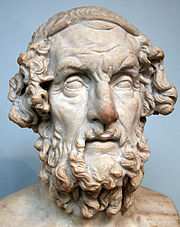Greek language
Indo-European language / From Wikipedia, the free encyclopedia
Dear Wikiwand AI, let's keep it short by simply answering these key questions:
Can you list the top facts and stats about Greek language?
Summarize this article for a 10 years old
Greek (Modern Greek: Ελληνικά, romanized: Elliniká, pronounced [eliniˈka]; Ancient Greek: Ἑλληνική, romanized: Hellēnikḗ) is an independent branch of the Indo-European family of languages, native to Greece, Cyprus, Italy (in Calabria and Salento), southern Albania, and other regions of the Balkans, the Black Sea coast, Asia Minor, and the Eastern Mediterranean. It has the longest documented history of any Indo-European language, spanning at least 3,400 years of written records.[2] Its writing system is the Greek alphabet, which has been used for approximately 2,800 years;[3][4] previously, Greek was recorded in writing systems such as Linear B and the Cypriot syllabary.[5] The alphabet arose from the Phoenician script and was in turn the basis of the Latin, Cyrillic, Coptic, Gothic, and many other writing systems.
| Greek | |
|---|---|
| ελληνικά | |
| Pronunciation | [eliniˈka] |
| Native to |
|
| Ethnicity | Greeks |
Native speakers | 13.5 million (2012)[1] |
Indo-European
| |
Early form | |
| Dialects | |
| Greek alphabet | |
| Official status | |
Official language in | |
| Language codes | |
| ISO 639-1 | el |
| ISO 639-2 | gre (B) ell (T) |
| ISO 639-3 | Variously:ell – Modern Greekgrc – Ancient Greekcpg – Cappadocian Greekgmy – Mycenaean Greekpnt – Pontictsd – Tsakonianyej – Yevanic |
| Glottolog | gree1276 |
| Linguasphere | |
 Areas where Modern Greek is spoken (in dark blue those areas where it is the official language).(The map does not indicate where the language is majority or minority.) | |
| This article contains IPA phonetic symbols. Without proper rendering support, you may see question marks, boxes, or other symbols instead of Unicode characters. For an introductory guide on IPA symbols, see Help:IPA. | |
The Greek language holds a very important place in the history of the Western world. Beginning with the epics of Homer, ancient Greek literature includes many works of lasting importance in the European canon. Greek is also the language in which many of the foundational texts in science and philosophy were originally composed. The New Testament of the Christian Bible was also originally written in Greek.[6][7] Together with the Latin texts and traditions of the Roman world, the Greek texts and Greek societies of antiquity constitute the objects of study of the discipline of Classics.
During antiquity, Greek was by far the most widely spoken lingua franca in the Mediterranean world.[8] It eventually became the official language of the Byzantine Empire and developed into Medieval Greek.[9] In its modern form, Greek is the official language of Greece and Cyprus and one of the 24 official languages of the European Union. It is spoken by at least 13.5 million people today in Greece, Cyprus, Italy, Albania, Turkey, and the many other countries of the Greek diaspora.
Greek roots have been widely used for centuries and continue to be widely used to coin new words in other languages; Greek and Latin are the predominant sources of international scientific vocabulary.
